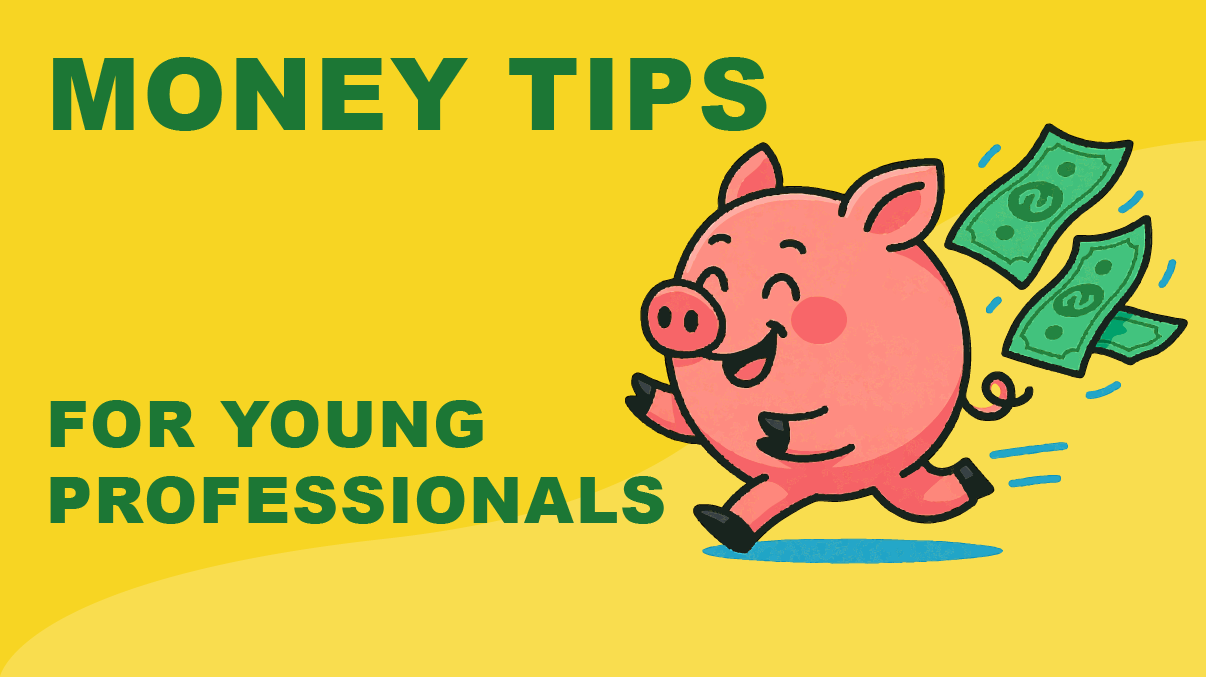When I First Started Earning “Real” Money
In my early 20s, I finally had a full-time paycheck and no idea what to do with it. I thought I was doing well because my checking account didn’t bounce, but I had no savings plan, no investments, and student loans that felt like they would be around forever.
If you are a young professional just starting out, you might feel the same. You are trying to make the right moves with money but do not know where to begin. The truth is that the earlier you start building good financial habits, the bigger the payoff.
Here is the financial advice I wish someone had given me when I was starting out.
7 Key Money Moves for Young Professionals
1. Make Saving Automatic
If saving depends on willpower, it will not happen consistently.
Set up an automatic transfer from checking to savings the day after payday. Start with 10 percent of your income if possible, but even 3 to 5 percent builds momentum.
Pro tip: Use a separate bank for your savings so it is harder to dip into.
2. Invest Early and Often
The best time to start investing was 10 years ago. The second-best time is today.
Thanks to compounding, even small contributions now can grow dramatically over time. For example, $200 per month invested with a 7 percent annual return for 30 years can grow to over $240,000.
3. Do Not Let Cash Sit Idle
Before I had financial commitments, I let thousands just sit in a checking account doing nothing.
A high-yield savings account (HYSA) is an easy way to put idle money to work while keeping it safe and accessible.
4. Choose the Right Retirement Accounts
I like the Roth 401(k) option because as I earn more over my career, I will not be taxed at a higher bracket when I withdraw.
If your employer offers a match, that is free money and you should never leave it on the table.
5. Use the S&P 500 as a Solid Foundation
For long-term investing, the S&P 500 is a safe, steady choice for most beginners. It offers diversification across major U.S. companies with historically strong returns.
6. Diversify Over Time
Once you have your core investments, consider diversifying into bonds, international funds, or other asset classes. This helps balance risk and gives you more stable returns over the long run.
7. Consider Real Estate as a Wealth Tool
I bought my first home in a good market, lived in it for five years, then sold it to pay off my student loans. That single decision left me completely debt-free.
Real estate is not right for everyone early on, but done wisely, it can be a powerful wealth builder.
The Takeaway
Being a young professional is the perfect time to lay the groundwork for long-term wealth. Every automatic transfer, investment contribution, and smart money move now will compound into freedom and security later.
Start small, start today, and watch how quickly momentum builds.
📥 Want more step-by-step beginner finance tips?
Join Know More Money and get my free guide: “7 Things I Wish I Knew About Money”.
It is short, simple, and packed with the lessons that helped me go from $200 in the bank to debt-free.
Additional Financial Tips for Young Professionals
Track Your Net Worth
Knowing your net worth helps you measure progress beyond just savings or income. Review it quarterly to stay motivated and spot trends.
Avoid Lifestyle Inflation
As your income grows, it is tempting to upgrade everything such as your apartment, car, and wardrobe. Instead, keep lifestyle upgrades modest and put raises toward savings and investments.
Build an Emergency Fund
Aim for 3 to 6 months of living expenses in a separate account. This protects you from job loss or unexpected expenses without relying on credit cards.
Learn the Basics of Taxes
Understand how your income is taxed, what deductions you qualify for, and how retirement contributions can reduce your tax bill.
Network for Financial Literacy
Surround yourself with people who are financially savvy. Their habits, conversations, and resources will rub off on you.
FAQ
Financial Advice for Young Professionals
Q: How much should a young professional save each month?
A: Aim for at least 20 percent of your income, split between savings and investments. Start smaller if needed, then increase annually.
Q: Should I pay off debt before investing?
A: Pay off high-interest debt like credit cards first. For lower-interest loans, you can invest and pay down debt at the same time.
Q: Is buying a home early a good idea?
A: Only if it fits your lifestyle and market conditions. Renting while investing aggressively can also build wealth.
*This content is for informational and educational purposes only. It should not be considered financial or investment advice. Please consult with a qualified professional before making any financial decisions.

